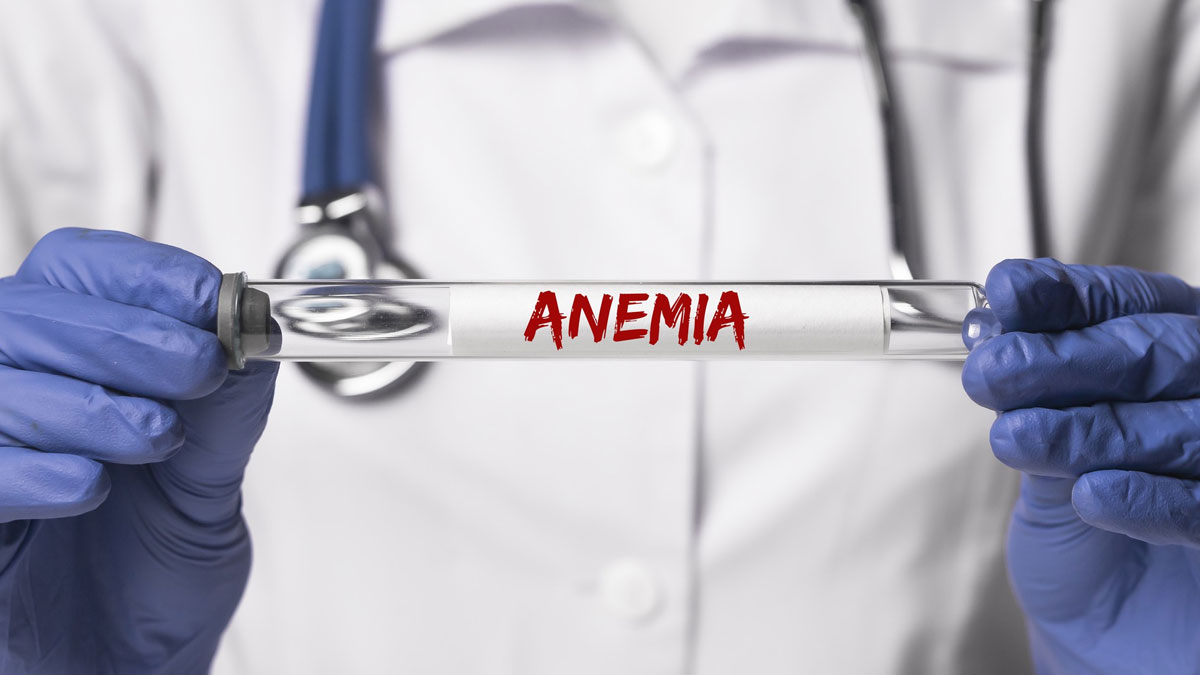
A nutrient deficiency occurs when you fail to consume that nutrient as per dietary guidelines. However, there are numerous other causes of nutrient deficiencies including medications, poor metabolism, chronic and acute health conditions. Sadly, most of us don’t know if we are dealing with a nutrient deficiency unless we see a doctor. Through this article, we wish to shed light on some of the very common nutrient deficiencies and their potential symptoms. This can help prevent health complications associated with it.
Table of Content:-
Calcium deficiency
Calcium is one of the most important mineral for human body. According to the National Institutes of Health, calcium is responsible for maintaining bone health and controlling muscle functions. According to UNICEF, 25% of Indian women are under-nourished with low levels of calcium. Also, women are more deficient in calcium than men, posing greater risk of osteoporosis. To identify whether you have calcium deficiency, look out for these initial symptoms:
- Tingling and numbness in hands and feet
- Muscle spasms and cramps
- Pain in joints
- Weak and brittle nails
Recommended dietary allowance for calcium- 1000-1300 mg per day.
How to get calcium through diet- Dairy products are the best sources of dietary calcium. Consume milk, yogurt and cheese. Green leafy vegetables are also rich sources of calcium.
Also Read: 8 Signs And Symptoms Of Calcium Deficiency You Must Know

Vitamin D Deficiency
This is the second most common nutrient deficiency in Indians after calcium deficiency. According to a NCBI study, “The prevalence of Vitamin D deficiency ranged from 40% to 99%.” The main reason behind this is poor absorption of vitamin D through diet and poor exposure to sunlight which is the ultimate source of vitamin D. This deficiency is touted as a silent epidemic with most Indians being vitamin D deficient.
Symptoms of vitamin D deficiency- Unexplained fatigue, bone pain, muscle spasms, weakness and mood changes.
Vitamin D deficiency increases the risk of autoimmune diseases in the long run. You must bask in early morning sunlight for 20-30 minutes to get some natural vitamin D. Besides, increase intake of fortified milk, yogurt, tuna and salmon fish. On an average, a person should take 15-20 micrograms of vitamin D daily.
Also Read: Excess Vitamin D Intake Is Harmful To Your Health, Know All About Vitamin D Toxicity
Iron deficiency or Anemia
A report by National Family Health Survey mentions that around 53% of Indian women are anemic. Iron deficiency occur when red blood cells levels decrease which can happen due to numerous reasons of which poor intake of dietary iron is the most common. Menstruating women are often anemic because of monthly blood loss. However, it is important to increase iron intake to prevent anemia that increases risk of irregular heartbeat which may aggravate heart failure in the long run.
The visible symptoms of iron deficiency include:
- Fatigue
- Cold hands and feet
- Shortness of Breath
- Frequent headache
- Brittle Nails
- Pale skin
Foods to combat iron deficiency- The recommended dietary allowance for iron is 18mg(for below 50years) and 8 mg for people aged above 50 years.
Vitamin B12 Deficiency
Vitamin B12 deficiency is a silent epidemic in India due to its widespread in the domestic population. One of the main causes of vitamin B 12 deficiency in India is that about 24-39% of Indians are vegetarian(data derived from wikipedia). Vitamin B12 is mainly found in animal products.

The symptoms of vitamin B12 deficiency are:
- Fatigue
- Numbness in hands and legs
- Weakness
- Problem in body balancing
- Inflamed and swollen tongue
- Poor concentration
Food sources for vitamin B12- Adults require 2.4 micrograms of vitamin B12 daily. Non-vegetarians can get this vitamin through chicken & meat, vegetarians must include milk, yogurt and fortified cereals to meet daily vitamin B12 intake.
Takeaways
You can prevent nutrient deficiencies by following a nutrient-rich balanced diet. Make sure to add all food groups to get essential nutrients. Speak to a doctor to get tested for these nutrient deficiencies and take supplements, as prescribed.
Image credits- freepik
Also watch this video
How we keep this article up to date:
We work with experts and keep a close eye on the latest in health and wellness. Whenever there is a new research or helpful information, we update our articles with accurate and useful advice.
Current Version